So, you’re ready to start training at Sky Chiefs Aviation. To start training, you must be approved for training by our Certified Flight Instructor, Ryan Foote. To be approved, simply contact us via email or give us a call. We will answer any questions you might have and get you set up in our system.
Student Questionnaire
To help us get to know you and assess you training needs, please take the time to complete the questionnaire (About You) below. You can email it to us or bring it with you to your first lesson or the meet and greet.
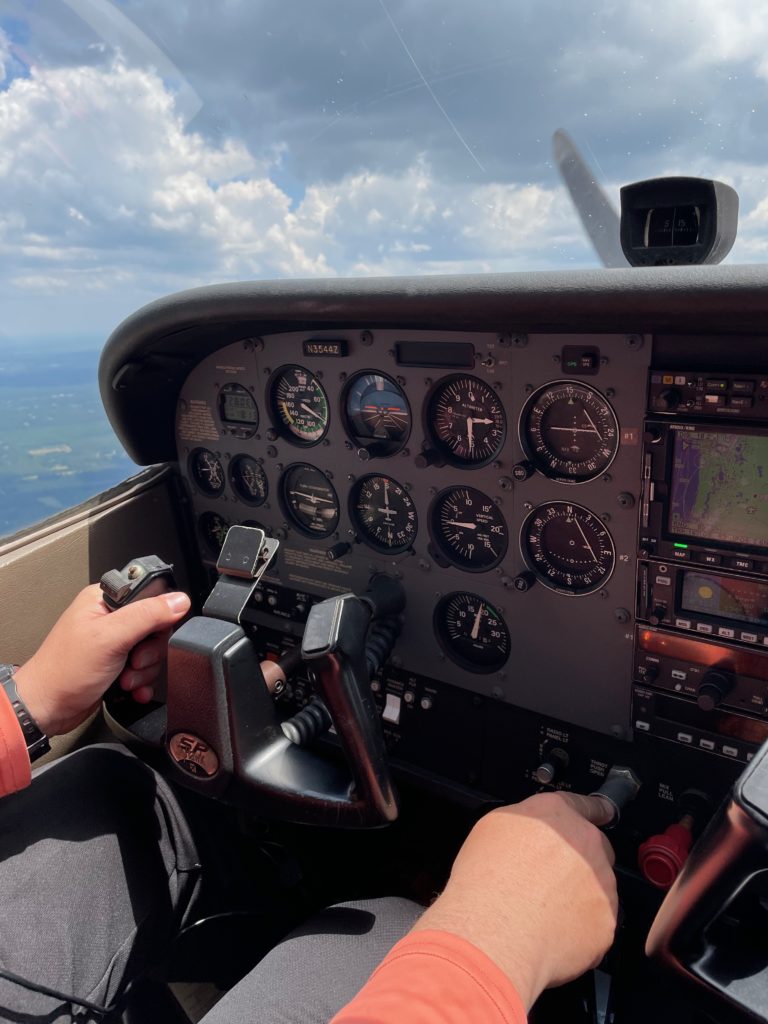
What You Will Need for Your First Lesson:
- Government issued photo ID.
- Proof of U.S. Citizenship.
- Unexpired U.S. Passport or Passport Card
- Original or certified copy of birth certificate
- IACRA Login Information.
- Training Kit
- Logbook
What Can I Expect at My First Lesson for Private Pilot?
The first lesson will last about 2 hours with the first half of the lesson doing administrative tasks, some ground training, and a quick flight as time permits. Your CFI will cover the following as time permits:
- Administrative Paperwork and Student Pilot Certificate Issuance
- Review and Sign Student Pilot Agreement
- Briefing of the Flight
- Basic review of different parts and components of the aircraft.
- Basic review of aircraft instruments for basic flight maneuvers.
- Detailed Pre-Flight Inspection
- Passenger Safety Briefing
- Taxi Practice
- Basic Flight Maneuvers (Straight-and-Level, Turns, Climbs and Descents)
- Your CFI will do the takeoff, landing, and handle all radio communications.
When Do I need to Have My Medical and Renters Insurance?
We highly recommend that you get your medical as quickly as practical. You will not be able to solo (act as pilot-in-command) until you have at least a Third Class Medical, and our required Renters Insurance.
Training Kit Recommendation
Sky Chiefs strongly recommends the use of either Jeppesen or Gleim Part 61 Training Kits for Private Pilot.
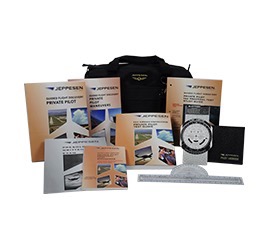
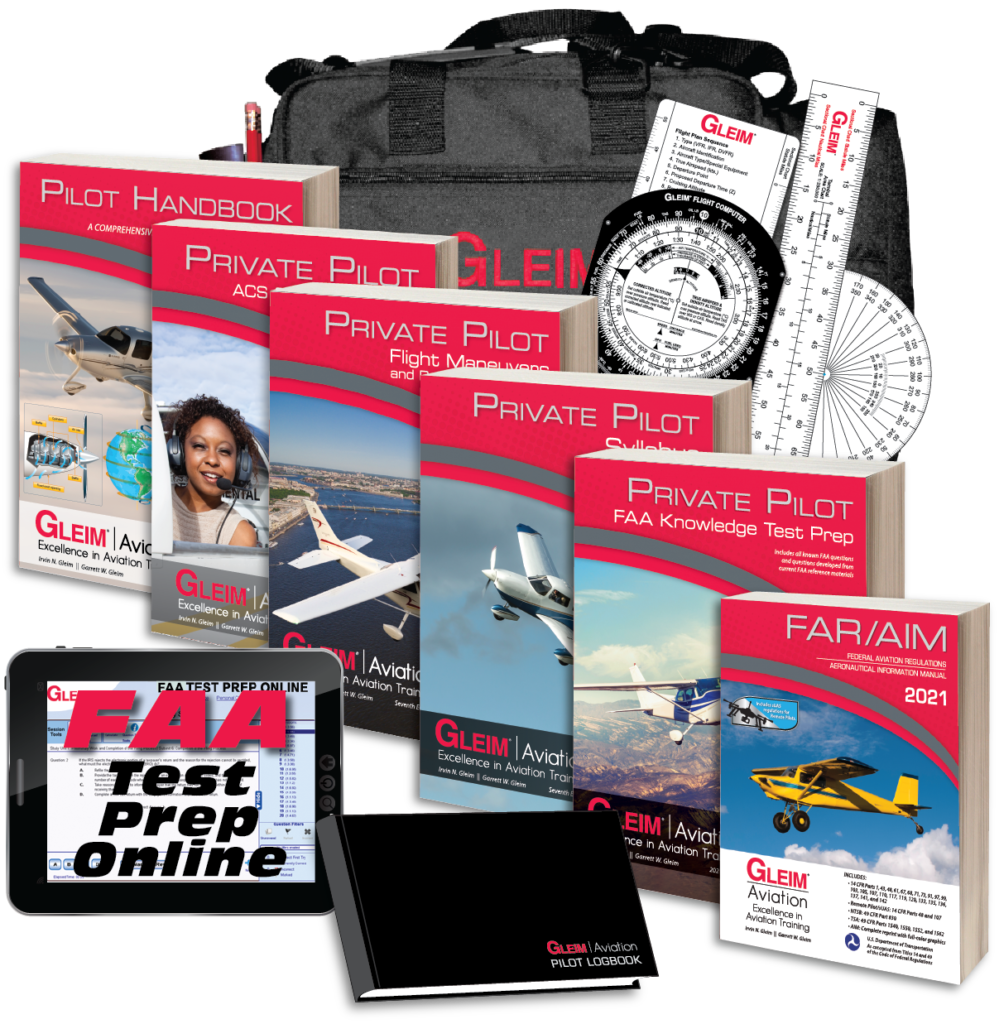
Recommended Items for Training
- Personal headset – talk to your CFI at about different types etc.
- Electronic E6B Flight Computer – ASA or Sporty’s.
- ForeFlight for iPad or iPhone
- Pilot Kneeboard
- Jeppesen Private Pilot Maneuver Handbook (Only if Using Gleim Kit).
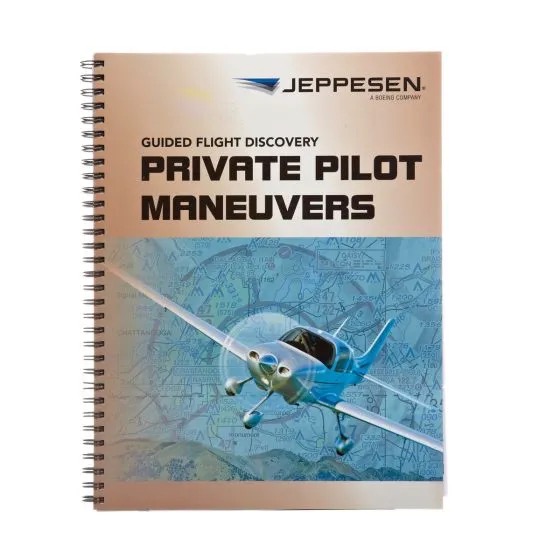
What to Expect as Each Lesson?
Typically, students will reserve the instructor and the aircraft for a two-hour block. The first first 15-30 minutes of the lesson is spent on briefing flight portion of the lesson (reviewing the maneuvers), discussing the weather, determining aircraft performance, determining fitness for flight, and any other pertinent information.
After the ground briefing is complete, a complete pre-flight of the aircraft will be conducted. Once airborne, and out at the practice area, your instructor will demonstrate the discussed maneuvers, you will demonstrate the maneuvers, the instructor will provide immediate feedback, and you will practice maneuver again. After the objectives are met, you will then head back to the airport for landing and a constructive and positive feedback (debriefing) from your instructor. The typical training flight, depending on the objectives, lasts about 1.0 – 1.3 hobbs hours.
How Long Before I Can Solo?
A Student Pilot will always remember the first time that they solo, as it’s a significant milestone in becoming a private pilot. The FAA does not set a specific numbers of hours before a Student Pilot can solo. However, Part 61 of the FAA regulations outlines the required maneuvers and aeronautical knowledge areas that a Student Pilot must demonstrate proficiency to safely operate the aircraft as pilot-in-command in solo flight, including consistently landing the aircraft in a safe manner, and handle emergencies in the unlikely event that they occur.
Safety is our top priority, as we want you to become a safe and proficient pilot. Sky Chiefs instructors do not put a specific amount of hours needed in order to solo. Landing is a skill that requires great attention to detail, good decision-making, excellent power management, patience, and practice to become proficient.
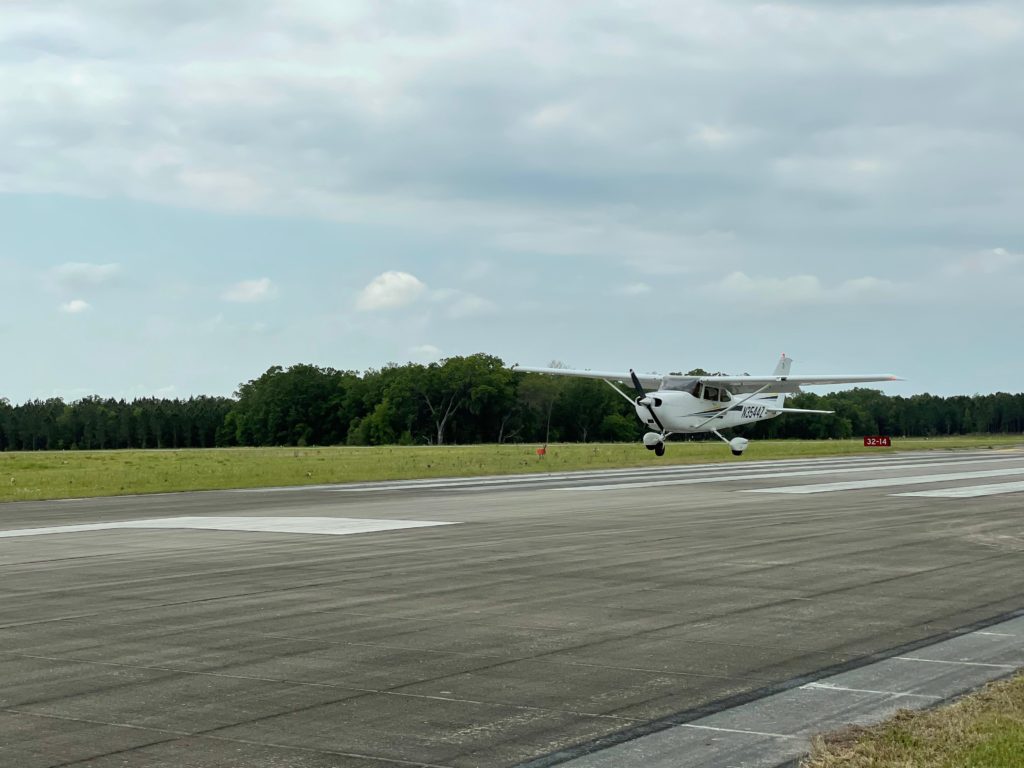
Should I Fly When I am Not Feeling Well?
NO!! You should not fly if you are not feeling well both physically and mentally – this includes not getting enough sleep. Safety is our top priority here at Sky Chiefs. As part of your training, your instructor will talk to you about aeromedical factors and conducting a self-assessment using the pneumonic, I.M.S.A.F.E. (Illness, Medications, Stress, Alcohol, Fatigue, Emotion/Eat.
Please, for our safety, if you are not feeling well, or did not get enough sleep, or taking a medication that makes you drowsy, or under tremendous amount of stress, LET US KNOW, AS WE WILL NOT FLY THAT DAY. Instead, we might do a little ground work, if appropriate.
Will I Fly to Other Airports on My Own?
Yes! You will do at least 5 cross-country flights: 2 with your instructor, and 3 solo flights. Venturing beyond the practice area is the most exciting part of flight training, but it requires new skills and a new approach to decision-making, especially when it comes to weather.
As part of your private pilot training, you will receiving training in planning and flying a cross-country flights. Your experienced CFI will help you plan, review aircraft performance data, develop a navigation log, and receive a standard weather briefing, all in preparation for your cross-country flights.
Some of the airports that you might be flying to are: Ocala, Gainesville, Brooksville, Zephyrhills, Leesburg, Perry-Foley, Suwannee Live Oak, Cedar Key, and Flying Ten.
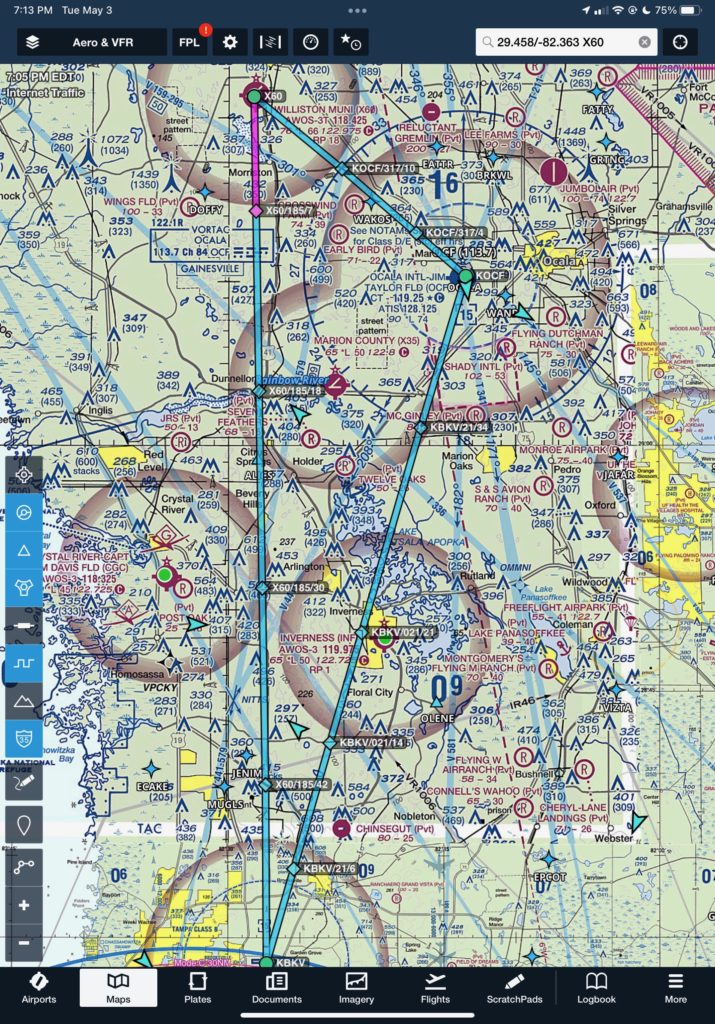
How Often Should I Fly?
This is a question that we get asked a lot. Ideally, if your budget and schedule permit, we recommend that you fly at least twice per week. This allows what you learned to stay fresh and prevents a significant amount of time between lessons due to weather delays, scheduling conflicts, and/or maintenance issues. We do have students that can only fly once per week and they have done well, it just took them slightly longer to complete their training.
What is ForeFlight & Can I Use It?
ForeFlight is a mobile electronic flight bag that offers a wide-variety of flight planning tools for the iPad, iPhone, iMac, and MacBook. According to ForeFlight “on the ground and in the air, pilots worldwide depend on ForeFlight Mobile for flight planning, charts, weather, airport information, document management, flight logging, synthetic vision, and more.”
ForeFlight is a powerful flight planning and informational tool that Sky Chief Aviation CFI’s strongly recommend you considering purchasing to add to your tool bag of information needed to safely plan cross-county and local flights.
Although we strongly encourage our students to have ForeFlight and FAA Designated Pilot Examiners (DPEs) permit them to be used within reason on checkrides, you will still learn to plan cross-country flights using Sectional Charts, Chart Supplements, and good old-fashioned paper weather charts.
ForeFlight is a powerful flight planning tool that requires the user to fully understand its capabilities and limitations. Each month, new features are added. We will do our best to teach you the basics of using ForeFlight as a supplement to the good old-fashioned paper charts.
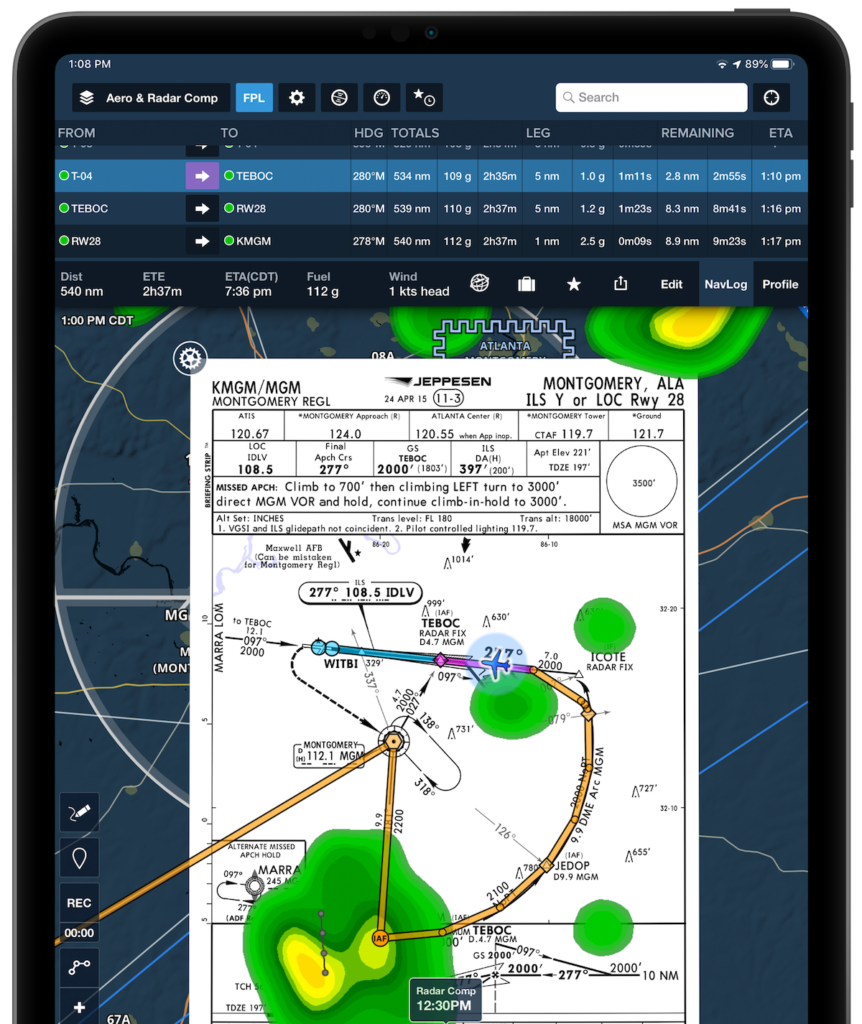
What is a FAA DPE?
A FAA Designated Pilot Examiner (DPE), is an experienced flight instructor that is authorized to administer the oral and flight portions of the practical examination, in accordance to current ACS or PTS testing standards, for the certificate or rating that you are applying for.
Once you are well prepared for your practical exam, we will then provide you with the names of the local examiners who administer examinations in the area so that you can schedule your practical exam. We will provide you with our recommendation for the examiner. Each examiner sets his or her own fees and rules associated with administering the exam.
